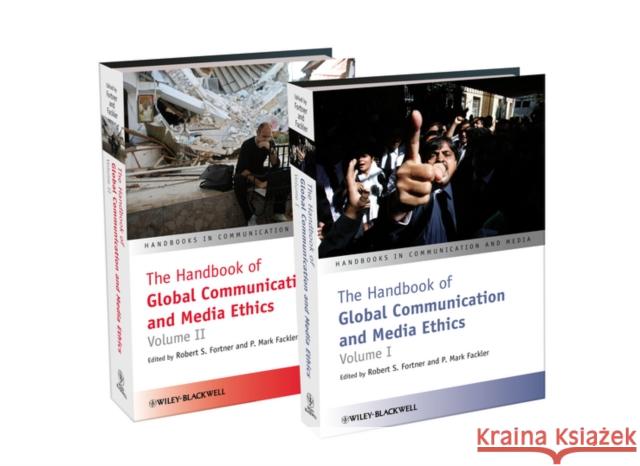The Handbook of Global Communication and Media Ethics » książka
The Handbook of Global Communication and Media Ethics
ISBN-13: 9781405188128 / Angielski / Twarda / 2011 / 1040 str.
The Handbook of Global Communication and Media Ethics
ISBN-13: 9781405188128 / Angielski / Twarda / 2011 / 1040 str.
(netto: 1605,32 VAT: 5%)
Najniższa cena z 30 dni: 1665,00
ok. 30 dni roboczych.
Darmowa dostawa!
This groundbreaking handbook provides a comprehensive picture of the ethical dimensions of communication in a global setting. Both theoretical and practical, this important volume will raise the ethical bar for both scholars and practitioners in the world of global communication and media.
- Selected by Choice as an Outstanding Academic Title for 2011
- Brings together leading international scholars to consider ethical issues raised by globalization, the practice of journalism, popular culture, and media activities
- Examines important themes in communication ethics, including feminism, ideology, social responsibility, reporting, metanarratives, blasphemy, development, and -glocalism-, among many others
- Contains case studies on reporting, censorship, responsibility, terrorism, disenfranchisement, and guilt throughout many countries and regions worldwide
- Contributions by Islamic scholars discuss various facets of that religion's engagement with the public sphere, and others who deal with some of the religious and cultural factors that bedevil efforts to understand our world
This book is designed to provide a comprehensive examination of the ethical issues that affect the practice of communication around the world. A variety of religious traditions, ideologies and world views, standard practices, cultures and economic considerations affect the types of decisions made by journalists, film makers, photographers, public relations practitioners, advertisers, editors, directors, producers, writers, and regulators. Many of these decisions have ethical dimensions, even when they are not recognized by those making the decisions. Across the world those who practice communication struggle with those who would influence their choices from philosophical or ethical perspectives.
How explicit should films be when telling the story of the Rwandan genocide? Should a liar be called a liar by an “objective” press? Should reporters be “embedded” with military units, or does that compromise their ability to tell the story or judge the rationales for going to war? Who gets it right – al Jazeera’s more explicit and gory reporting of a bomb blast’s aftermath, or the sanitized “family” news programs shown in the United States? Should film makers cooperate with government’s demands on them so that they can avoid “undermining army morale,” or does that compromise the public’s expectations of them? Is citizen journalism legitimate? Is propaganda ever legitimate? Is blogging a positive or negative aspect to the Internet? Does new technology make it more or less likely that people will be well–informed? Is the “digital divide” real and, if so, does it make the “right to communicate” an increasily unlikely prospect? The questions with ethical dimensions seem nearly limitless, with traditional ones continuing to defy consensus and new ones being added regularly to the mix.
As information increasingly flows across borders in ever–greater quantities, it forces such questions to the surface. This comprehensive, two volume handbook outlines these perspectives and more, positing one against another on common themes to provide a foundation for seeking such a resolution of perspectives.
The two volumes are organized around a set of qestions that experts in various fields address. Each volume begins with introductory chapters that outline the primordial issues in global communication ethics and the newly–emerging issues based in developing technologies affecting the practices of communicators. The two volumes together would have sections devoted to ideology and ethics, religion and ethics, monopoly and ethics, conflict and ethics, culture and ethics, and technology and ethics.











